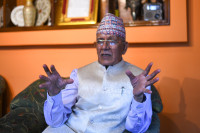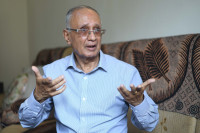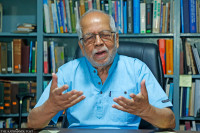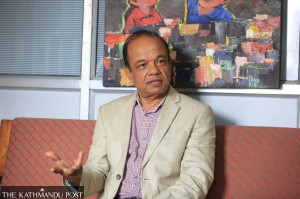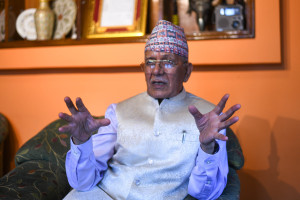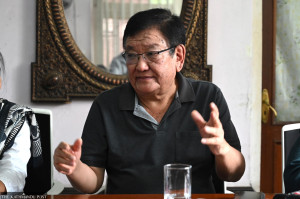Interviews
Whip system should be modified to make our parliament effective
Only around 15 percent of our lawmakers thoroughly study bills and proposals. The rest don’t care what is in the bills.
Thira Lal Bhusal
The inefficiency of Nepal’s federal parliament has again been exposed after the plenary of the House of Representatives was found to have endorsed a bill whose provisions were tampered with—but apparently none of our lawmakers noticed. A malafide intent in the bill’s preparation was also evident. The issue has rocked the parliament and shocked experts of parliamentary practices. The Post’s Thira Lal Bhusal sat down with Manohar Bhattarai, former general secretary of the federal parliament, for insights into why such cases happen and how they can be prevented.
The issue of tampering with the ‘cooling off’ period provision of the Federal Civil Service Bill has come to the fore. Who could have done it and how do such things happen in our parliament?
This cooling off period provision applies to a large segment of civil servants as it is linked to their present career and post-service days. Moreover, those in the leadership positions of the civil service and in the retirement phase are directly impacted. This might be why they are reportedly lobbying against this provision. And, many people might have tried to change the bill in the course of finalising it.
What is your take on the idea of cooling off period?
This is a good proposal. See, those who are about to retire worry about post-retirement days. While in service, they want to make sure that they get a new appointment so that they will not be idle after retirement. However, it’s not something the state can guarantee all the time. Top bureaucrats such as the chief secretary and the secretaries need to work closely with politicians and they have to fulfill responsibilities and take important decisions. It is thus vital that these officials are guided by the constitution and laws. But if the post-retirement life is at the back of your mind, you can’t take right decisions nor can you work independently. You become a slave of someone.
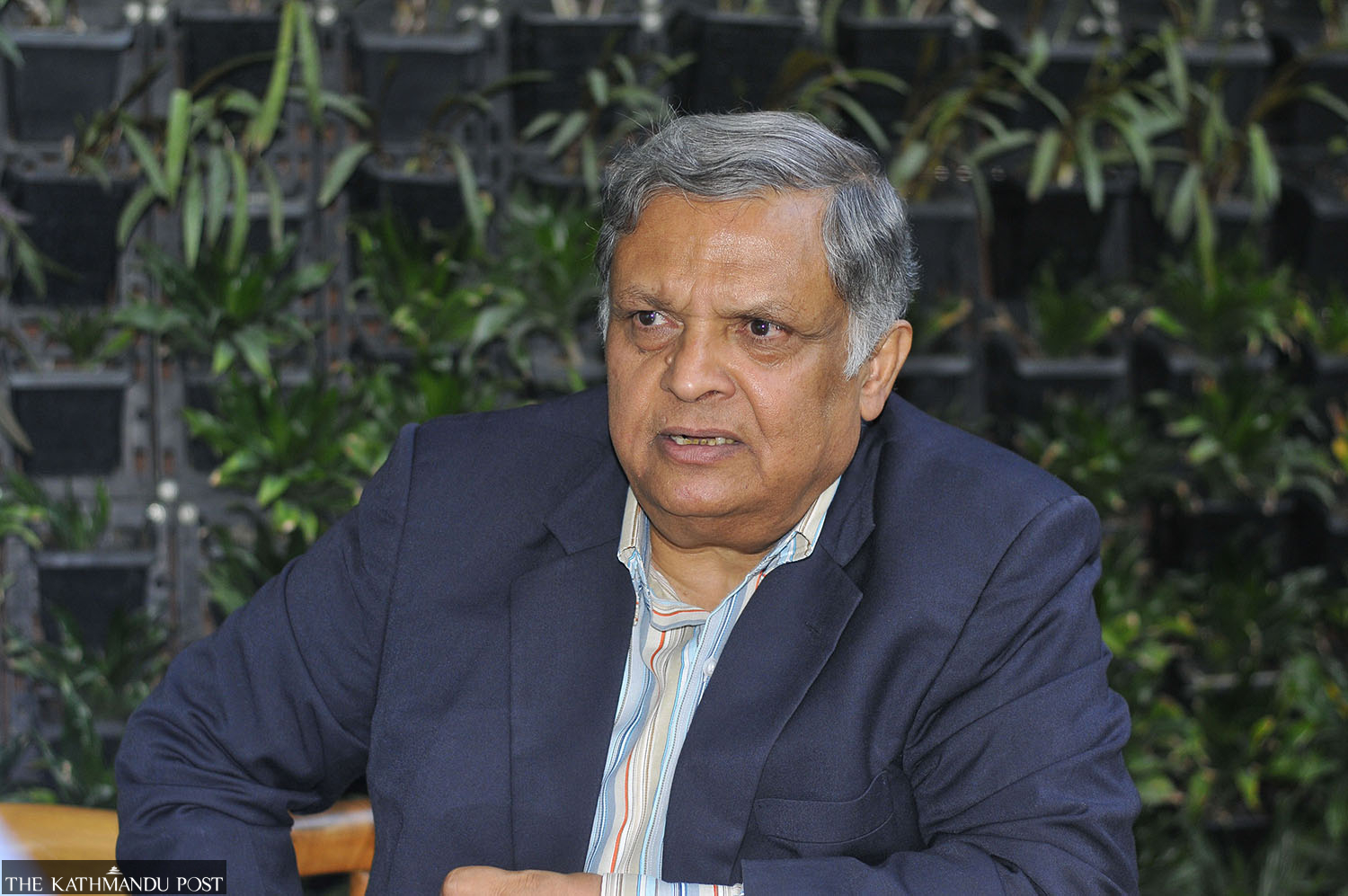
When I was general secretary in parliament, a chief secretary asked me to write a letter to the Cabinet with regard to the President summoning a joint session of the parliament, when such a summon was not necessary. I reiterated that I can’t write such a letter. The chief secretary first asked me over the phone, then we met in person. He said, “You have to write it as the prime minister has ordered it.” Then I said, “I can’t do anything against the House regulation and the spirit of the constitution, even if the prime minister wants it.”
But he kept putting pressure on me. Under pressure, I wrote a two-sentence letter with ambiguous language. After that, I talked to a senior leader who had good relations with both the then prime minister and the President. I told him that I had written the letter under pressure but with rather nebulous language. I said it was a ridiculous idea. He then talked to the prime minister and other top leaders but couldn’t convince the head of government. Then, he informed the President, who called a meeting of the experts who decided to reject the letter. After that, the chief secretary called me from Sheetal Niwas and told me, “Mahasachib jyu, your stance prevailed. Sorry for the inconvenience caused”.
I don’t want to name the then prime minister and the chief secretary. Both of them are still active and the former chief secretary has been enjoying lucrative appointments after his retirement. This is just an example of how top bureaucrats work to appease leaders and get plum positions after retirement.
What did the prime minister in question really want?
Once the President addresses a joint session of parliament, there is no need to summon it again from the President’s office. It can be convened through regular procedures. But the prime minister wanted to do that. The chief secretary was working in a way to make the prime minister happy and ensure an attractive appointment after retirement. How can there be good governance if top bureaucrats don’t fulfill their duty in the hope of getting future appointments? The cooling off period is necessary to stop such a tendency. Unfortunately, there has been dishonest, immoral and objectionable manipulation to tamper this provision even after the House committee endorsed it unanimously.
Besides the House committee, officials from two different ministries were also involved in the course of preparing the bill. Who do you think is responsible for the tampering?
The way the wrong provision was endorsed by the House plenary suggests many have failed to carry out their duties. However, the committee chair, secretary and its members are mainly responsible. Role of other agencies including the law ministry is informal and technical. There is a tradition of taking their support to prepare bills, but their role is not definitive. Someone seems to have manipulated or influenced them as well. This calls for proper investigation.
Do ministry officials involved in the drafting process have any space to manipulate?
Officials from the ministries and other agencies participate there but their involvement is informal. They may work to fulfill someone’s vested interest but again even if they have done so, the committee is the authoritative as well as responsible body to finalise a bill. Only the decision of majority members of the committee has validity. Therefore, the entire responsibility for the bill and the report submitted to the plenary lies with the committee. If there is any doubt, the committee chair, secretary and members can cross-check whether a bill has been properly drafted as per the spirit of the discussions and decisions made in committee meetings.
But the committee chair, the secretary and its members are accusing each other in this case.
Whatever the case, there has been a big mistake because it is now clear that the plenary of the House endorsed the provision that undercuts the very essence of the bill. So, a fact finding team should investigate the matter and the culprits must be exposed. If such a crime can happen in the parliament, where people’s representatives are expected to act transparently, we can only imagine what happens elsewhere. Such acts don’t happen in a responsible parliament.
What kind of body should investigate and how hopeful are you that such a body will find the truth and expose culprits?
Big teams often don’t work effectively. A small team of experts with high moral integrity and knowledge of parliamentary practices and procedures should be formed. But even if such a team gives a report, I doubt the implementation of its recommendations. If history is any guide, such issues get weaker over time and Nepalis tend to forget things.
How difficult is it to handle the pressure of interest groups while making laws in parliament?
There is a school of thought that the parliament should be open, accessible and transparent. But becoming too accessible can also be problematic. Some dubious people have access to our parliament. For instance, such people had easy access to our lawmakers when our House committee was working on the bill to amend the Bank and Financial Institutions Act (Bafia). Even some lawmakers, who were not committee members, lobbied to insert provisions in favour of interest groups. Some lawmakers, who had conflict of interest on the issue, lobbied to weaken the Bafia bill, the medical education bill and many others. Though the media exposed these activities, the groups were organised and strong. Ultimately, such groups succeeded in getting the laws amended in their favour. Thus easy access to our parliament is being misused.
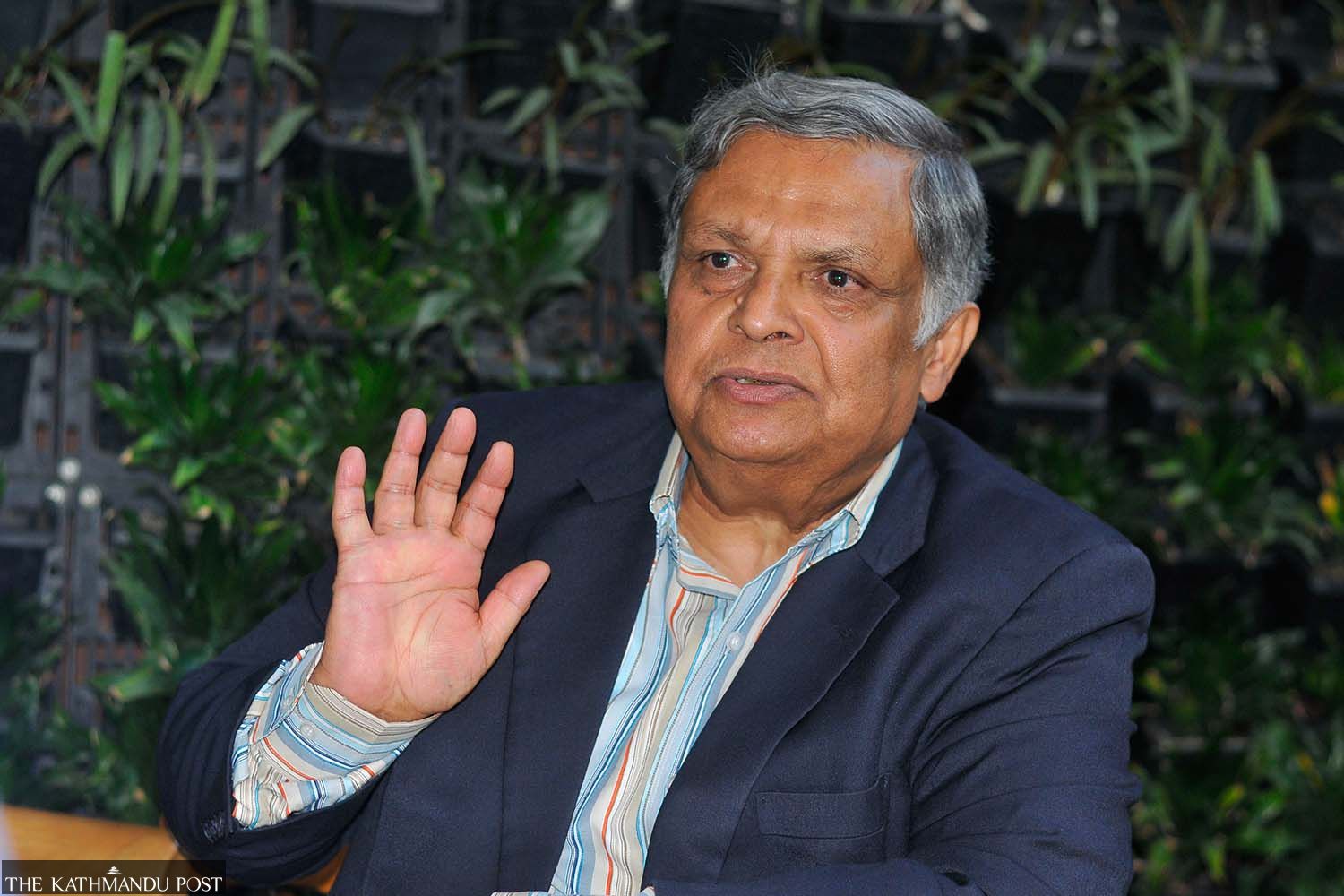
We hear about lobby groups in other countries. How are they different?
Only registered lobby groups are allowed abroad. They have to identify themselves and make clear the cause they are working for. In parliament, there are certain areas where nobody should be allowed—not even the media.
In principle, the parliament is the supreme and sovereign law making body. But in practice passing a bill is not feasible without the executive’s support as the government commands majority in the House. In a system where lawmakers can’t go against the whip issued by their respective parties, is it really the parliament that makes the law?
The laws of political parties guide the lawmakers as they can’t defy the parties’ whips. If the parliamentary system is to function and allow the people’s representatives to work independently, there should be a system where political parties can issue whip only in special cases. They may issue whip to pass policy and programmes, annual budget, in the case of trust vote or on other crucial issues. But people’s representatives should be allowed to work on regular bills and other businesses independently, based on their own conscience.
Otherwise, the House can do nothing more than what the government wants of it and our parliament’s functions will be perfunctory. People’s representatives should be allowed to work as per their conscience and the mandate of the people they represent. We have to modify the whip system to make our parliamentary system meaningful. Lawmakers in developed democracies are independent to vote as per their conscience. Therefore, even if a government is in a majority, it is still uncertain if it can get majority votes—even ruling lawmakers can be against a bill, or opposition members can support the government proposal. But in our case, you rarely see that. This is one reason behind the poor presence of lawmakers in House meetings. They know that what they say in the House makes no difference.
Sometimes the quality of deliberations of our lawmakers looks pathetic. Last year, some MPs shared their views about electricity trade while they were supposed to discuss e-commerce and even the line minister thought the House was discussing energy issues. How do you rate our lawmakers?
I don’t want to offend anyone, but only around 15 percent of our MPs seriously study bills and other proposals. The rest don’t care about what is in the bills, amendments, and what is being passed. They give their opinions and cast their votes as instructed by the party’s chief whip. The bills and amendments are distributed to each member but only a few of them study the texts well. At least well-informed voters should study whether their representatives are representing them well and make them accountable. The example you gave highlights the need to educate our parliamentarians. The current issue of tampering with the cooling off provision also exposes the shortcomings of the MPs. So make sure a candidate can meaningfully represent you. At times, MPs appear like pawns of powerful leaders. Making our parliament effective starts with the candidates selection process for elections.




 21.12°C Kathmandu
21.12°C Kathmandu
